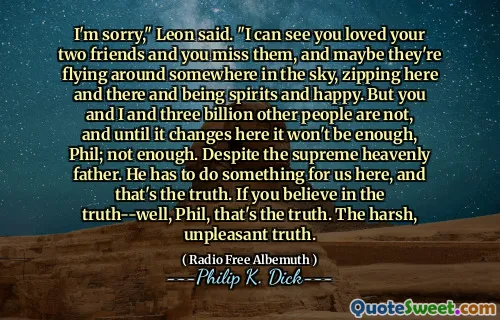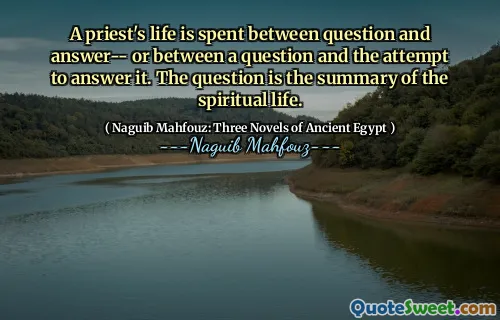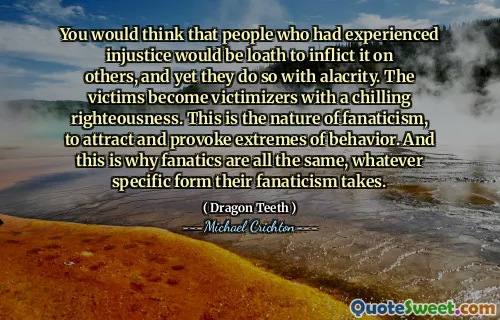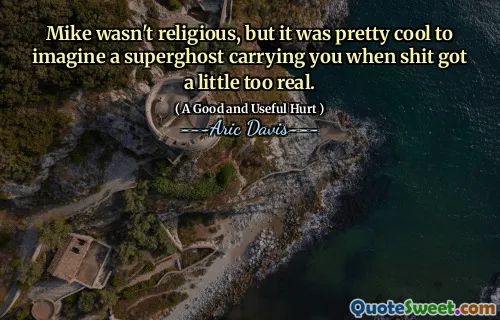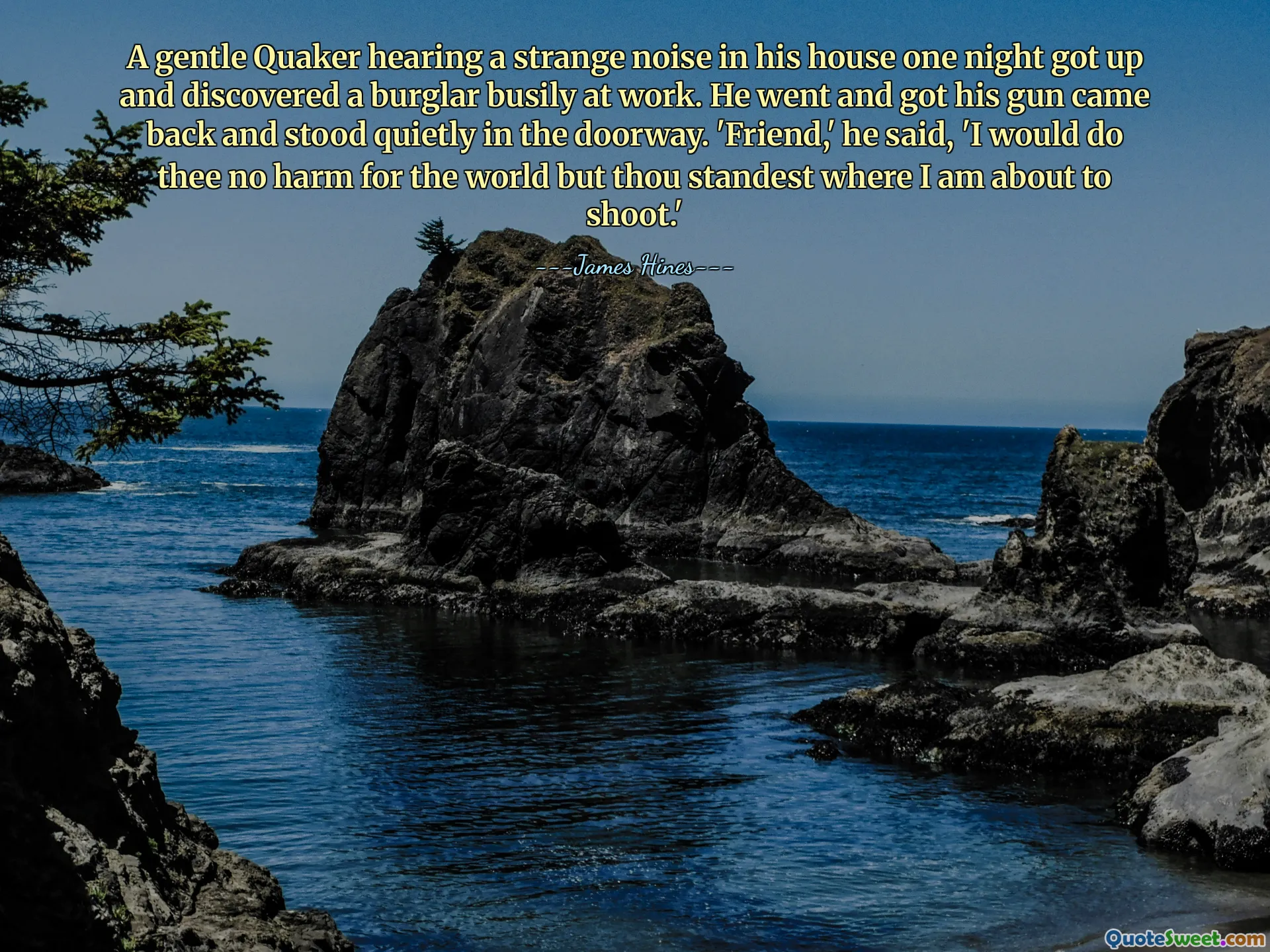
A gentle Quaker hearing a strange noise in his house one night got up and discovered a burglar busily at work. He went and got his gun came back and stood quietly in the doorway. 'Friend,' he said, 'I would do thee no harm for the world but thou standest where I am about to shoot.'
This quote poignantly captures the essence of nonviolence combined with self-defense. The Quaker's response to an intruder entering his house is a beautiful balance of peace and practicality. Rather than reacting with immediate aggression, he first acknowledges the situation calmly and humanely by addressing the burglar as a "friend," reflecting the Quaker values of kindness and respect for all individuals. Yet, he also asserts his boundaries firmly and clearly, making it known that while he wishes no harm, he will protect himself if necessary. This story elegantly illustrates that strength and compassion are not mutually exclusive; it is possible to hold a steadfast commitment to peace while standing resolute in protecting one's life and property. The Quaker's demeanor sends a powerful message about the importance of measured responses in moments of crisis—and how conscience and courage can coexist. Moreover, it highlights an ethical framework that refuses to dehumanize the intruder, instead appealing to shared humanity even in conflict. I find this quote deeply inspiring because it challenges the common dichotomy of violence versus passivity, showing a third path of thoughtful restraint paired with readiness. In today's world, which often swings between extremes, this stance invites us to consider new ways of addressing conflict that honor compassion without sacrificing safety. The story remains a timeless reminder that peaceful intentions can dictate our actions even in the most threatening circumstances, offering a nuanced approach to justice and moral integrity.
---James Hines---







